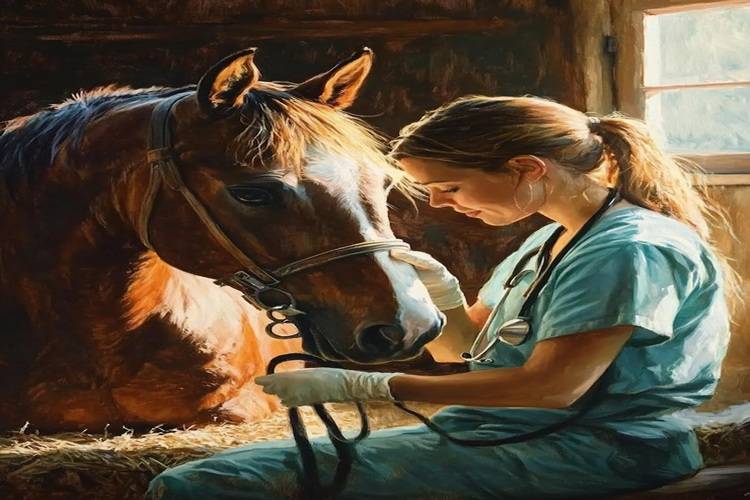The sound of hoofs hitting the ground is a sign of accuracy, balance, and health besides strength. A talented trainer and a veterinarian who thinks beyond traditional treatments are the driving forces behind every successful horse. Integrative veterinary medicine for horses combines conventional treatment with complementary treatments to provide a comprehensive approach to performance and recuperation.
A New Way of Caring for Equine Athletes
Horse athletes put themselves through a lot of physical strain. Their bodies are under constant strain, whether they are dressage champs, racehorses, or jumpers. Symptom-based therapy is only one aspect of integrative veterinary medicine. It emphasizes comprehending the horse as a whole, including its metabolism, muscles, and cognition.
Integrative medicine uses therapies including acupuncture, chiropractic adjustments, herbal treatments, and physiotherapy to supplement traditional veterinary care’s treatment of wounds, infections, and illnesses. The goals are preventing problems before they arise and promoting natural healing when they happen.
Merging the Best of Two Worlds
Integrative treatment works because it strikes a balance. A veterinarian can provide anti-inflammatory drugs to alleviate discomfort besides using acupuncture to promote cellular healing. Similarly, recommended rest and dietary changes can be combined with massage or laser treatment to regain strength and flexibility.
With this method, horses can regain their competitive edge without needing to take too many drugs. It is especially helpful for chronic pain, post-competition weariness, and long-term musculoskeletal issues, all of which are prevalent in high-achieving horses.
The Role of Nutrition and Mindful Recovery
Nutrition is another essential component of holistic equine veterinarian care. Energy, muscle regeneration, and mental clarity are all supported by a diet tailored to the animal’s activity, metabolic rate, and recovery goals. Omega fatty acids, probiotics, and herbal blends are a few examples of supplements that help improve immunity and digestion, enabling the horse to exercise regularly without experiencing energy dumps.
Healing is more than simply physical. The general health of a horse can be affected by stress. The nervous system may be calmed, circulation can be improved, and equilibrium can be restored with gentle therapies like massage and acupuncture. These benefits are essential for both competition and leisure times.
Why It’s Gaining Ground Among Trainers and Owners?
Integrative veterinary medicine for horses is becoming more and more popular among top horse owners since it encourages longevity in performance. They are preventing injuries rather than continuously treating them. Horses recover faster from intense experiences, stay active for longer seasons, and experience fewer relapses. It is care that is intended for the long term as well as the present.
The Bottom Line!
Horse athletes achieve new heights of vigor when holistic healing and traditional veterinarian treatment are combined. Integrative veterinary therapy is not a fad; rather, it is a methodical, scientifically supported approach to assisting horses in reaching their maximum potential, recovering completely, and leading healthier lives.
Frequently Asked Questions
What is integrative veterinary medicine for horses?
It’s an approach combining traditional veterinary treatments with complementary therapies such as acupuncture, chiropractic care, herbal medicine, and physiotherapy to support both recovery and overall equine wellness.
Is integrative medicine safe for competitive horses?
Yes. When guided by a licensed veterinarian, integrative methods are safe and can even enhance performance by promoting better healing and reducing stress without conflicting with competition regulations.
How does it differ from traditional veterinary care?
Traditional care treats immediate issues, while integrative medicine focuses on prevention, recovery, and balance by addressing the horse’s entire well-being, including physical, nutritional, and emotional.
Can these therapies replace regular veterinary treatments?
No, they complement traditional care. Integrative medicine enhances outcomes by using natural and physical therapies alongside conventional treatments, not as substitutes.
How soon can results be seen with integrative veterinary medicine?
Improvement varies by condition and therapy. Some horses show progress within a few sessions, while chronic cases may take weeks, with lasting benefits for performance and comfort.

